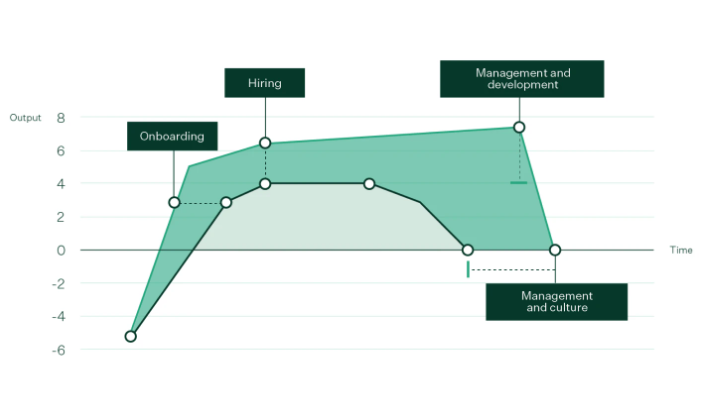iCIMS released their 2022 Class of Covid-19 report, which is an annual report on recent college grad expectations around jobs and careers! Some very interesting findings that can help you and your organization better understand Gen Z.
So, what do the kids want?!
- Entry-level applicants have high expectations for “securing the bag.” Recent grads expect an average salary of more than $70,000, while employers expect to pay entry-level candidates just under $53,000. When it comes to getting paid, one in five recent grads expects cryptocurrency as a compensation option.
- The gender pay gap continues to negatively influence females’ expectations. Female recent grads expect to earn $10,000 less a year than their male counterparts. For the past seven years that iCIMS has commissioned this research, females consistently expect to make less money in their first job than males.
- An unprofessional interview appearance could cost candidates the job. Recent grads say dress codes are out, as more than one-third (37%) believe what they wear to work shouldn’t matter. However, hiring pros say that appearing unprofessional is the top reason that entry-level candidates are not hired. Whether taking a virtual interview in a bedroom or an in-person interview in a boardroom, a professional appearance is required to ace an interview and land the job.
- Recent grads pass the loyalty test. While entry-level workers have developed a reputation for job-hopping, the overwhelming majority (91%) say they care how long they stay with an employer and nearly 70% see themselves staying with an employer long-term.
- They work to live instead of living to work. Gen Zers are loyal, but their well-being wins. Nearly half (49%) say a full-time job is “just a job” and they prioritize their personal passions. Many Gen Zers (48%) say they don’t need to work nine to five to be successful in their career.
- Mental health matters. Two in three recent grads expect their employer to support their mental health and participate in open conversations about it. They also must personally align with a company’s mission and core values when applying for a job.
- Virtual reality isn’t just for gamers. Approximately a third of recent grads would be comfortable working in a virtual reality (VR) environment, such as the metaverse. But, other generations of workers aren’t ready for that, as only 13% of older generations report they’d like to spend their days in a VR workplace.
You can download the full report here!
Does this align with what you were thinking?
It seems like every single year I review this report, there is misalignment on what new grads believe they will earn and what they will actually learn, so I’ve come to expect this result now. I used to blame higher ed for not setting these expectations better. Now, I just think it’s dumb kids believing dumb things. We all thought we were worth more than we were!
Again, I totally get those young people who believe that how you dress has nothing to do with your ability to do a job. They are correct! But, first impressions and landing the job you want, appearance still matters to those selecting. So, you can fight the establishment on this, but the establishment will win!
Interestingly, I was expecting more around remote vs. hybrid vs on-premise. Most recent studies I’ve seen by Gen Z have the majority wanting on-prem experiences!

